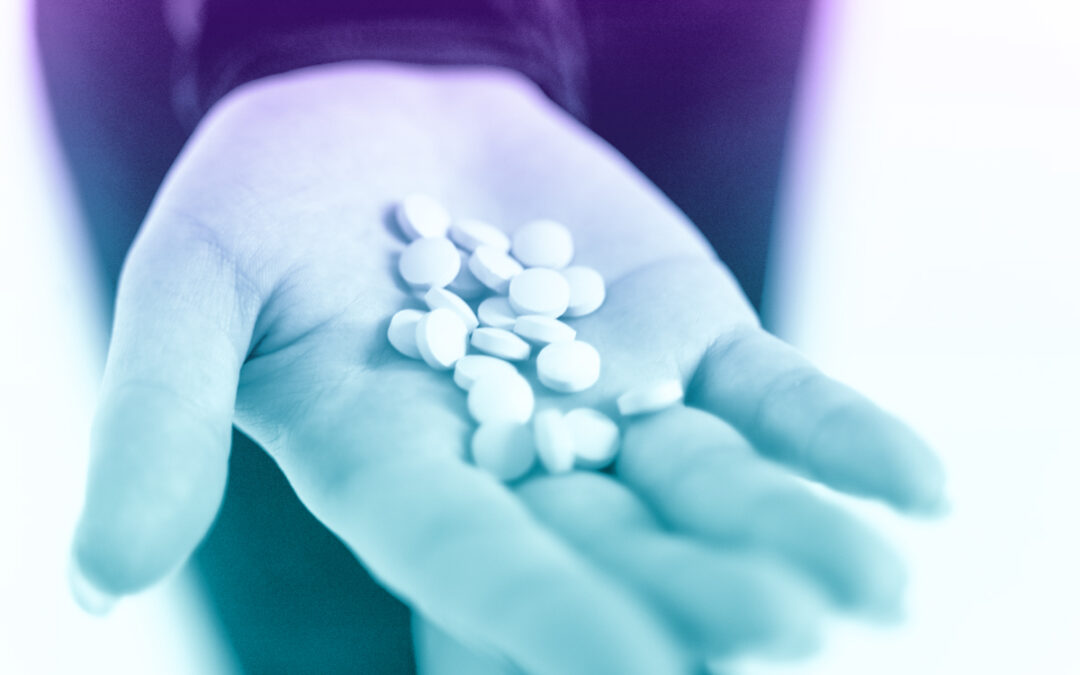Weaker Drugs Laced with Fentanyl
Many U.S. states have taken steps to reduce the number of opioid prescriptions given as more people are suffering from addictions. As a result of these recent crackdowns, many people turn to the streets to purchase drugs illicitly. Dealers who sell opioids and other weaker drugs are increasingly cutting them with fentanyl, a hazardous substance.
Once unknown by drug users, fentanyl is a synthetic opioid that is leading the next wave of opioid addiction. The health consequences are severe if you unknowingly purchase a weaker drug that has been laced with fentanyl. Here is everything you need to know about fentanyl, including side effects, symptoms, and treatment options.

What Is Fentanyl?
According to the Centers for Disease Control, fentanyl is one of the most dangerous drugs sold. The drug is significantly more potent than both heroin, cocaine, and morphine. A small dose weighing less than two milligrams is strong enough to kill most adults.
Fentanyl is a human-made drug that is cheap and relatively easy to obtain. It is cheaper and easier to buy than more common street drugs, including heroin and cocaine. The affordability of the medicine is why many drug dealers cut them and add them to other drugs to stretch batches further. The consequences can be deadly if you unknowingly buy a batch of street drugs that have been combined with fentanyl.
How Does Fentanyl Impact the Brain?
Fentanyl acts in the same manner as other opioid drugs as it binds to the brain’s receptors that impact pain and emotions. These receptors help relieve pain and are responsible for feelings of happiness and relaxation. Fentanyl affects everyone differently, depending on an individual’s health status, size, and weight. The effects of the drug on the brain are also dependent on:
- Amount of fentanyl consumed
- If taken in combination with other drugs
- How long the person has been using opioids
Over time, the brain adapts to the drug, making it harder for you to experience the desired outcomes. This adaptation can lead to addiction and unsafe levels of fentanyl consumption.
What Drugs Are Often Laced With Fentanyl?
Drug dealers and distributors often sell meth, cocaine, and heroin laced with fentanyl. Dealers combine drugs with fentanyl without the knowledge of buyers to get people hooked and to make the drugs go further. According to recent government reports, black-market fentanyl is responsible for the recent spike in overdose deaths. Fentanyl can be sold as a powder or mixed with other drugs. People who take a medication that is combined with fentanyl are much more likely to experience a fatal overdose.
Fentanyl Abuse
As previously discussed, opioids are prescribed by medical professionals to treat pain. After prolonged use, the drug takes a higher amount to achieve the same results. The body can also become dependent on the pain-relieving properties associated with the drug. Opioid dependence also causes withdrawal symptoms, making them difficult to stop. Addiction occurs when your drug addiction impacts your daily life.
People who have are addicted to fentanyl often fail to maintain personal relationships or hold a job. They also usually suffer from health problems, mood swings, and money challenges. People with substance abuse problems may not be aware of the problems associated with fentanyl use, which puts them at a high risk of accidental overdose.
Fentanyl Overdose Symptoms
The signs of fentanyl overdose are hard to detect if you have never seen it before. Initially, the signs of an overdose can mimic alcohol intoxication. However, the severity of symptoms increases rapidly and can become dangerous. An overdose can happen within a few minutes of taking the drug, so recognizing the following signs is critically important.
- Fatigue
- Dilated pupils
- Respiratory issues
- Unconsciousness
- Confusion
- Nausea
- A drop in blood pressure
- Dizziness
- Trouble with coordination
This is not a comprehensive list of symptoms. If you suspect a friend or family member is experiencing an overdose, contact emergency services immediately.
Treatment Options for Fentanyl Addiction
Treatment for fentanyl addiction depends on many factors, including the severity of the condition and the individual’s general health status. Treatment options can include medication treatments, residential programs, and therapy.
Medications including methadone can help reduce the symptoms of withdrawal in specific individuals. Methadone must be prescribed by a medical professional and can impact the brain’s receptors that are affected by fentanyl.
Your doctor can also choose to prescribe naltrexone, which works differently from methadone but can still help reduce withdrawal symptoms. Talk with your doctor about the best medication for your addiction. No matter the drug prescribed, it should be taken under the direct supervision of a medical professional.
Therapy can also help some individuals overcome addiction issues. Therapy options include:
- Cognitive-behavioral therapy: This type of treatment involves working with a therapist to change behaviors and manage anxiety and triggers.
- Contingency management: This type of therapy provides vouchers when patients have negative drug tests.
- Motivational interviewing: This type of treatment provides therapy based on the patient’s unique needs, helping them overcome negative thoughts that lead to addiction.
Ask your doctor if therapy can help your recovery process.
Frequently Asked Questions About Fentanyl
Most people are unfamiliar with fentanyl and have questions about the purpose and appearance of the drug. Here are answers to some frequently asked questions about fentanyl:
Is Fentanyl Safe if Prescribed by a Doctor?
Fentanyl is a highly addictive drug that doctors sometimes prescribe to relieve pain. This drug is safe when prescribed by a licensed doctor and used correctly. This drug should only be used under the direct supervision of a licensed medical professional.
However, you should take extreme caution if combining fentanyl with other drugs or alcohol. Inform your doctor of all other medications you take, including pain relievers and vitamins. To keep others safe, make sure that all medicines are kept out of reach of pets, children, and adults dealing with addiction issues.
What Does Fentanyl Look Like?
Unfortunately, fentanyl can be hard to identify, especially if mixed with other drugs. However, you can do a few things to identify the drug. First, look at the color of the substance. Many street drugs such as cocaine are pure white, particularly when in power form. However, the color of the substance can change when mixed with fentanyl. Typically, fentanyl creates patches of brown spots in the powder.
What Should I Do If I Suspect a Drug Overdose?
Act quickly if you suspect a friend or loved one has overdosed on fentanyl. Call for medical help right away if the person has a seizure, stops breathing, or becomes unconscious. You should also call for medical help if the person complains of chest pains or trouble breathing. An overdose of fentanyl can cause death quickly. If you suspect anyone has consumed too much of the drug, call 911 right away.
Be especially careful when handling fentanyl, as it can be absorbed into the skin. Use gloves when handling the drug, and do not put it close to your eyes, nose, or mouth. It does not take much of the drug to cause devastating health impacts, so be wary whenever handling the substance.
The best way to avoid an overdose is to only use the drug under the supervision of a licensed medical professional. Seek medical help immediately if you suspect you have become dependent on the drug or if you are taking too much.
Can I Test My Drugs for Fentanyl?
Unfortunately, there are no tests that the general public can buy to check street drugs for fentanyl. The best way to avoid the drug is to stop using any form of unprescribed substances.
Get Help With Clean Recovery Centers
Are you dealing with a drug addiction? Contact Clean Recovery Centers today for help. Located in Florida, we provide various treatment options for both drug and alcohol addiction. We offer many programs, including medical detox, residential treatment, mental health services, outpatient therapy, and transitional living. Contact us today to begin your journey back to health.
Sources:
- https://www.borderreport.com/hot-topics/border-crime/cartels-peddle-fentanyl-laced-meth-and-heroin-without-users-knowledge/
- https://www.medicalnewstoday.com/articles/308156#uses
- https://www.ehealthsask.ca/services/resources/Resources/Fentanyl_FAQ.pdf


